Activist Doctor In Iran Sentenced To Four Years In Prison
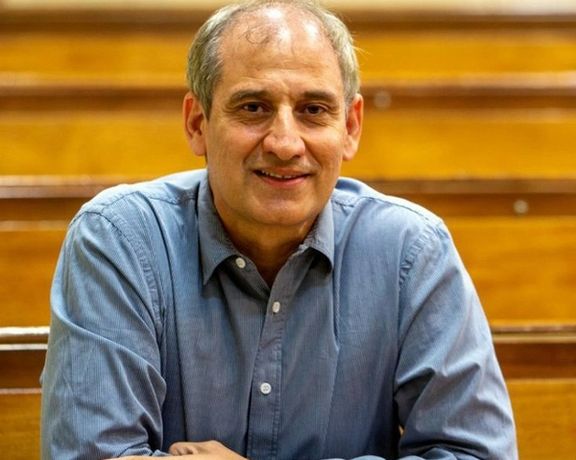
The Islamic Republic has sentenced a general surgeon to a four-year jail term for taking part in a protest by doctors in October government violence against protesters.

The Islamic Republic has sentenced a general surgeon to a four-year jail term for taking part in a protest by doctors in October government violence against protesters.
Hashem Moazenzadeh, surgeon and activist, was arrested by the IRGC intelligence during nationwide protests late October.
According to Human Rights Activists News Agency (HRANA), the sentence was issued at a preliminary court and if it is approved at the appeals court, Moazenzadeh could serve up to three years.
Based on HRANA’s report, a revolutionary court in Tehran tried Moazenzadeh for charges such as "holding gatherings and conspiring against the security of the country" and "propaganda against the establishment."
Also, "a two-year ban on leaving the country, membership in parties, political and social groups, and activities in cyberspace" has been considered as an additional punishment for him.
During the protests by doctors in Tehran on October 25, another general surgeon was shot in the head and killed by the security forces.
Doctor Parisa Bahmani, from Zanjan, was killed during the gathering of doctors in front of Tehran Medical Council, after government forces opened fire on demonstrators.
Doctors had held the protest rally against the government’s policies of preventing medical care for the wounded protesters, using ambulances to transport security forces, and militarizing the hospitals.
The regime has killed over 500 people including tens of children during the protests since mid-September.
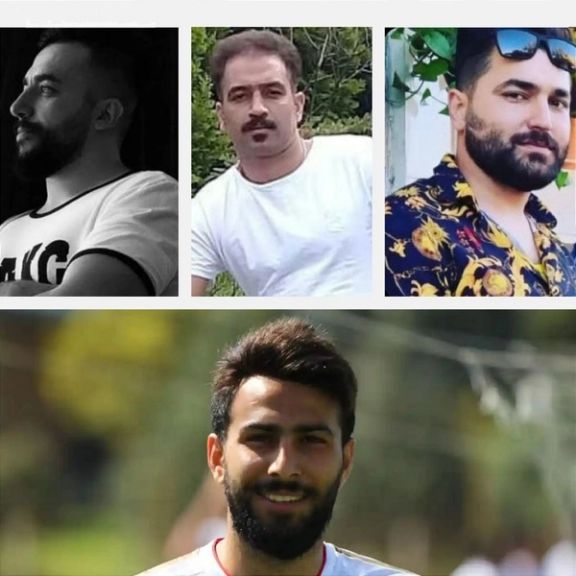
Concerns are growing over the possible execution of three more detained Iranian protesters, as reports say they have been transferred to solitary confinement.
Majid Kazemi and Saeed Yaqoubi arrested in Esfahan are reportedly taken to solitary confinement which is suggesting that they would be hanged soon.
Colleagues and family members of Majid Kazemi, who is sentenced to death have made a video appeal Saturday, demanding the release of the young protester.
In an audio file from prison on Friday, Majid Kazemi said he was forced to make false confessions under duress.
Saeed Yaqoubi and Saleh Mirhashmi are two other defendants in the case known as “Esfahan House” who have received the death penalty along with Majid Kazemi.
Saleh Mirhashmi said earlier that he has been tortured in detention and the agents have injured his ears and broken his teeth while beating him.
At the same time, Amir Nasr-Azadani, who used to play for several Iranian football teams, has released an audio file asking the sports community to support him.
Nasr-Azadani is another defendant in the case who earlier received a 26-year jail term. In his audio file, the former football player asked athletes and his friends to be his voice and support him.
The Islamic Republic accused several people in connection with an armed attack on November 16 on “Esfahan House” neighborhood claiming that two security forces and a police officer were killed by protesters.
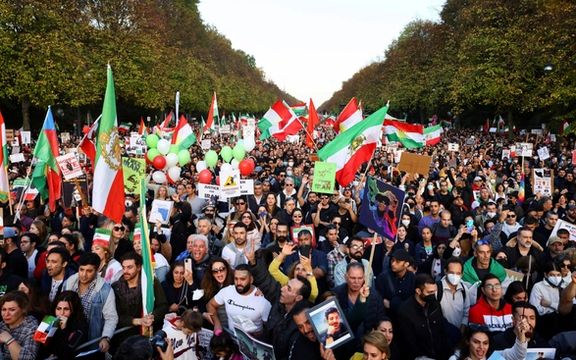
Iranian diaspora is preparing for a Solidarity Rally in Strasbourg to urge the European Union to list the Revolutionary Guard (IRGC) as a terrorist organization.
Thousands of Iranians from all over Europe who have pledged to participate in the Monday rally are passionately discussing ways to get to Strasbourg on social media to send a strong message to the European Parliament that has a plenary session on Tuesday.
Some social media users have urged Syrians, whose country has been a playground for the IRGC, and Ukrainians whose Russian enemy uses the Iranian-made drones against them, to join the rally and support their cause.
An underground alliance of protester groups in Iran has also welcomed and supported the diaspora’s initiative. “We wish to declare our full support for listing [the IRGC] as a terrorist organization by the international community,” United Youth of Iran, an underground alliance of revolutionary youth groups from various Iranian cities, said in a statement sent to Iran International Saturday.
The group has criticized the IRGC’s suppression of protests in Iran, direct and indirect violation of human rights in other countries including Syria and Ukraine, and economic corruption including alleged involvement in drug and arms trafficking and money-laundering by the Guards. “The IRGC’s actions bring nothing but pain, death and corruption to the Middle East and the world,” the statement said.
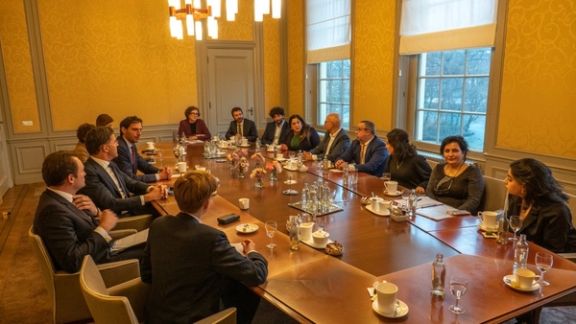
Unlike the United States which in 2019 under President Donald Trump put the IRGC on its Foreign Terrorist Organizations (FTO) list, European countries avoided the designation in the past few years and prioritized diplomacy with the Islamic Republic in the hope of concluding a nuclear deal.
Talks in Vienna to revive the deal, officially known as the Joint Comprehensive Plan of Action (JCPOA) came to an abrupt stop in March 2022, reportedly for Iran’s insistence that the IRGC be removed from the US FTO list. Later talks elsewhere failed to bring about an agreement.
The US and European powers have shown much less interest in a deal following the Iranian government’s heavy-hand suppression of protests in the country in the past few months. As early as October, the US State Department spokesperson Ned Price said the deal was no longer the US government’s focus, and that focusing on supporting the protesters in Iran had taken priority.
News that Iran is supplying Russia with kamikaze drones also angered the West and added to the pressure to get tough with Tehran.
So far over 500 protesters have been killed by security forces, mainly consisting of the IRGC and its Basij militia. Four protesters have been executed so far by the state after hasty trials devoid of any regard for due process. Others are on death row.
Many politicians in France, Germany, and other European countries have been keen to pursue the IRGC’s designation by the EU and say that it has been long overdue.
“Let’s rally together, united, and with a common mind to label IRGC as a terrorist organization. Sanctioning criminals is not enough! We need a resolution! Let's make the world a safer place to live in!” Alireza Akhondi, Swedish-Iranian member of the Swedish parliament who has been campaigning for the EU designation of the IRGC tweeted on January 10.
In an interview with Iran International a week earlier, Akhondi said designation of the IRGC as a terrorist organization should be followed by tracing the organization’s money and blocking its money-laundering channels to weaken it.
Members of the UK House of Commons on Thursday unanimously voted for a motion urging the UK government to proscribe the IRGC by listing it as a terrorist organization.
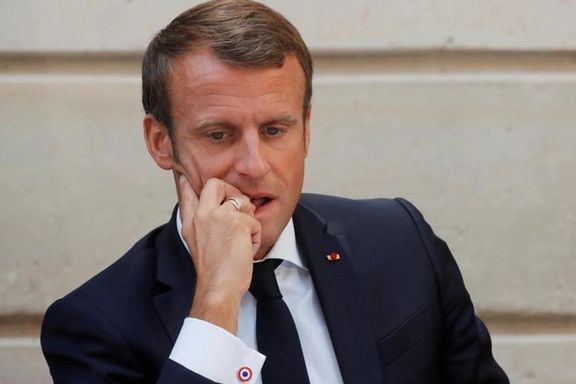
The execution of British-Iranian dual national Alireza Akbari is a heinous and barbaric act, French President Emmanuel Macron said on Saturday.
Macron said he stood in solidarity with Britain which has condemned the execution, which defied British and US calls for the 61-year-old Akbari's release after he was handed a death sentence on charges of spying for Britain.
“His name is added to the too long list of victims of repression and the death penalty in Iran. Solidarity with the United Kingdom. Solidarity with the Iranian people,” Macron said.
Macron’s statement came after both the British prime minister and foreign secretary harshly condemned Tehran’s act.
"I am appalled by the execution of British-Iranian citizen Alireza Akbari in Iran," British Prime Minister Rishi Sunak said on Twitter. "This was a callous and cowardly act, carried out by a barbaric regime with no respect for the human rights of their own people."
British Foreign Secretary James Cleverly also tweeted to say: "This barbaric act deserves condemnation in the strongest possible terms. This will not stand unchallenged."
In an audio recording from Akbari and broadcast by BBC Persian and Iran International, he said he had confessed to crimes he had not committed after long interrogation and extensive torture.
"After more than 3,500 hours of torture, psychedelic drugs, and physiological and psychological pressure, they took away my will. They drove me to the brink of madness. They instilled in me what they wanted and forced me to make false confessions at gunpoint and threats of death," Akbari said.
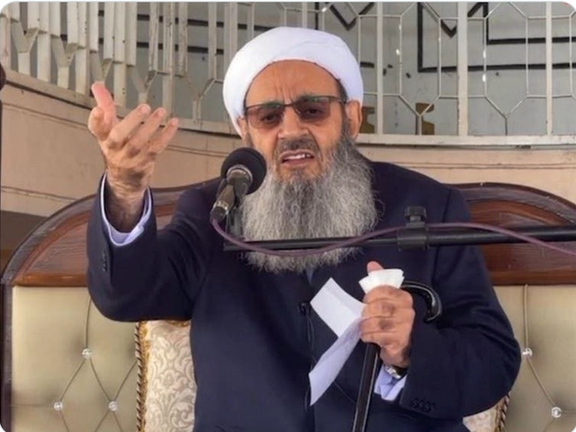
The official newspaper of the Iranian government has lashed out at Sunni religious leader of Zahedan, claiming that Mowlavi Abdolhamid is trying to lead “riots”.
Iran Daily, the formal government newspaper, leveled the accusation on Saturday, saying that the Friday Imam of Zahedan in the largely Sunni southeastern Sistan- Baluchestan province continues to play his “destructive role against national security and unity”.
The daily also claimed in an editorial note that the “CIA media arms have invested on Abdolhamid”.
After the Bloody Friday of Zahedan on September 30, in which tens of Baluch citizens were killed by the regime, Mowlavi Abdolhamid held Supreme Leader Ali Khamenei responsible and demanded the cancellation of death sentences for protesters. He has continued calling for justice and respect for the people, gaining support from non-Sunni Iranians.
Last week, Mohammad Javad Larijani, one of the political figures of the Islamic Republic, implicitly called for the destruction of Makki Mosque in which Mowlavi Abdolhamid makes critical sermons on Fridays.
Earlier in November, the hacktivist group Black Reward targeted the data servers of Fars news agency, a media network affiliated with the Islamic Republic's Revolutionary Guard, releasing several documents to media indicating that Khamenei is dismayed by Mowlavi Abdolhamid’s remarks, the most prominent religious leader of Iran's largely Sunni Baluch population.
The documents also revealed that instead of arresting or harming him, Khamenei ordered underlings to tarnish Abdolhamid’s reputation so that his influence would decrease among the Sunni population of the country.
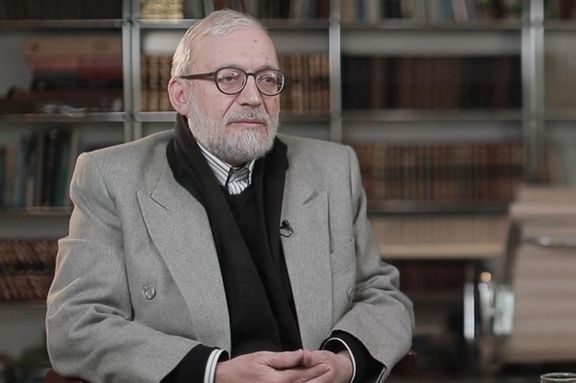
Iranian conservative politician and former diplomat Javad Larijani has defended stoning for adultery, saying it is a good Islamic law protecting “family values.”
Stoning, or lapidation, is a method of capital punishment where people throw stones at a person until the subject dies from blunt trauma. It is attested as a form of punishment for unlawful sexual intercourse.
In an interview with Fars website of the Revolutionary Guard Saturday, Iran’s former Secretary of High Council for Human Rights claimed some good laws have been passed by the Islamic Republic to protect women's rights.
He said stoning is one of the good Islamic laws and has been a very nice deterrent so far.
“When we say our women should enter the community, we should have provided them with a very safe work and social environment,” added Larijani stressing that “Stoning is a very important restraining law to protect the marriage contract of families.”
Stoning is not mentioned as a form of capital punishment in the canonical text of the Quran. However, Islamic scholars have traditionally postulated that there is a Quranic verse about it.
Death by stoning came into force in Iran after the 1979 revolution, but the judiciary placed a moratorium in 2002 and it was replaced by the death penalty more than a decade ago.
Victims are put in a ditch filled with sand. The stoning then begins, with rocks relentlessly pummeling the victims until they die.
A doctor recruited to oversee the execution will pause the stoning periodically to check whether the victim is dead. If not, the battering continues.